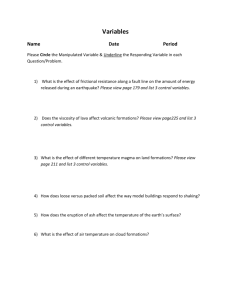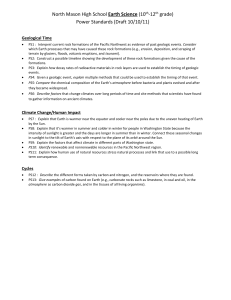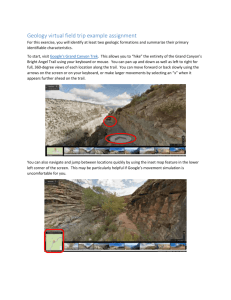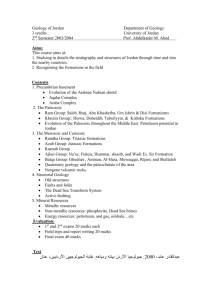College of San Mateo Official Course Outline COURSE ID: Units:
advertisement
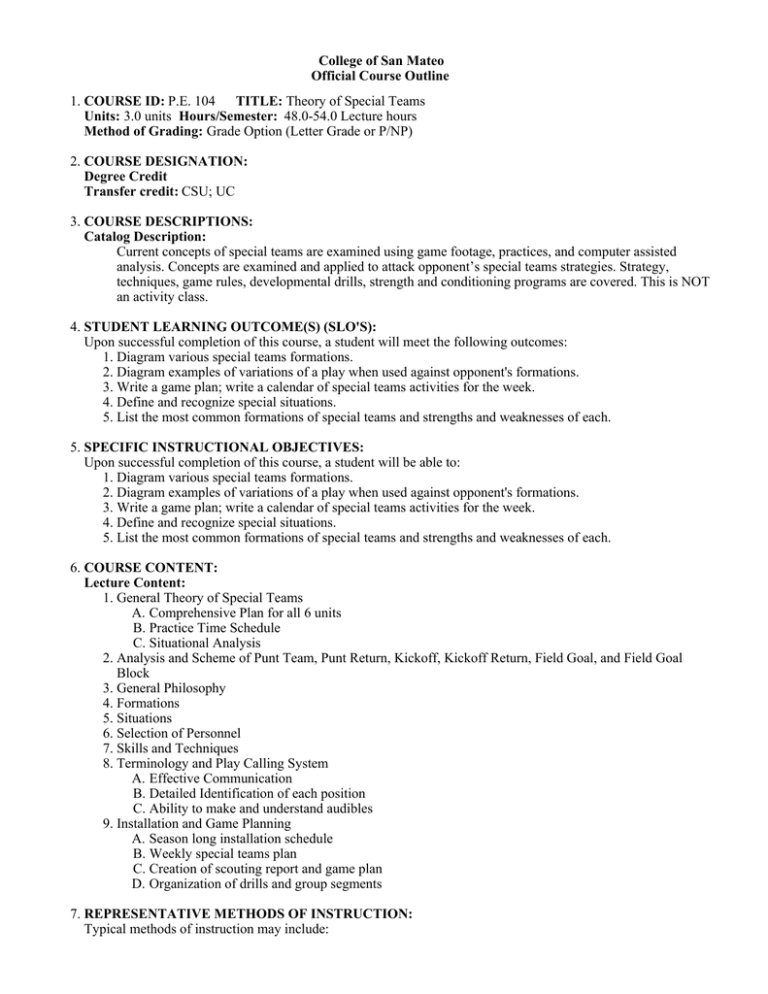
College of San Mateo Official Course Outline 1. COURSE ID: P.E. 104 TITLE: Theory of Special Teams Units: 3.0 units Hours/Semester: 48.0-54.0 Lecture hours Method of Grading: Grade Option (Letter Grade or P/NP) 2. COURSE DESIGNATION: Degree Credit Transfer credit: CSU; UC 3. COURSE DESCRIPTIONS: Catalog Description: Current concepts of special teams are examined using game footage, practices, and computer assisted analysis. Concepts are examined and applied to attack opponent’s special teams strategies. Strategy, techniques, game rules, developmental drills, strength and conditioning programs are covered. This is NOT an activity class. 4. STUDENT LEARNING OUTCOME(S) (SLO'S): Upon successful completion of this course, a student will meet the following outcomes: 1. Diagram various special teams formations. 2. Diagram examples of variations of a play when used against opponent's formations. 3. Write a game plan; write a calendar of special teams activities for the week. 4. Define and recognize special situations. 5. List the most common formations of special teams and strengths and weaknesses of each. 5. SPECIFIC INSTRUCTIONAL OBJECTIVES: Upon successful completion of this course, a student will be able to: 1. Diagram various special teams formations. 2. Diagram examples of variations of a play when used against opponent's formations. 3. Write a game plan; write a calendar of special teams activities for the week. 4. Define and recognize special situations. 5. List the most common formations of special teams and strengths and weaknesses of each. 6. COURSE CONTENT: Lecture Content: 1. General Theory of Special Teams A. Comprehensive Plan for all 6 units B. Practice Time Schedule C. Situational Analysis 2. Analysis and Scheme of Punt Team, Punt Return, Kickoff, Kickoff Return, Field Goal, and Field Goal Block 3. General Philosophy 4. Formations 5. Situations 6. Selection of Personnel 7. Skills and Techniques 8. Terminology and Play Calling System A. Effective Communication B. Detailed Identification of each position C. Ability to make and understand audibles 9. Installation and Game Planning A. Season long installation schedule B. Weekly special teams plan C. Creation of scouting report and game plan D. Organization of drills and group segments 7. REPRESENTATIVE METHODS OF INSTRUCTION: Typical methods of instruction may include: A. Lecture A. Lecture B. Critique C. Directed Study D. Discussion E. Individualized Instruction F. Other (Specify): Lecture and demonstration aided by video of actual games and practices. Individual students will present situations and solutions at the chalk board, group discussions, student presentations on selected topics. 8. REPRESENTATIVE ASSIGNMENTS Representative assignments in this course may include, but are not limited to the following: Writing Assignments: Develop a written game plan for all six phases of special teams attacking the opponent's structure for each game of the upcoming season. Reading Assignments: Instructor generated handouts reviewing: -Opponents typical alignment for returning: Right/left/middle; Punts, Kickoffs, On-side kicks -Opponents typical alignment for coverage: Right/left/middle; Punts, Kickoffs, On-side kicks -Punts: Block, Protection -Field goal/P.A.T.: Block, Protection 9. REPRESENTATIVE METHODS OF EVALUATION Representative methods of evaluation may include: A. Class Participation B. Class Work C. Exams/Tests D. Group Projects E. Oral Presentation F. Quizzes G. The student will be evaluated on the basis of responses to discussion topics, written assignments, quizzes, and exams. 10. REPRESENTATIVE TEXT(S): Possible textbooks include: A. Cieri, Michael A. 101 Winning Special Teams Drills, 2nd ed. Monterey, CA: Coaches Choice, 2011 Origination Date: October 2014 Curriculum Committee Approval Date: January 2015 Effective Term: Fall 2015 Course Originator: Andreas Wolf
